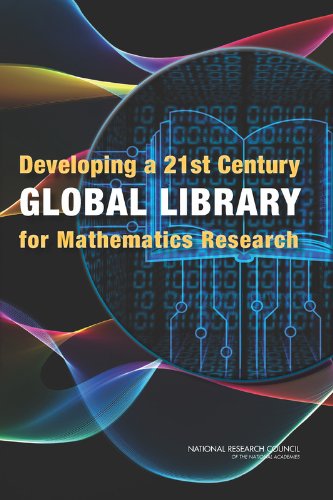(Ebook) Developing a 21st Century Global Library for Mathematics Research by Committee on Planning a Global Library of the Mathematical Sciences, Board on Mathematical Sciences and Their Applications, Division on Engineering and Physical Sciences, National Research Council ISBN 9780309298483, 0309298482
Like most areas of scholarship, mathematics is a cumulative discipline: new research is reliant on well-organized and well-curated literature. Because of the precise definitions and structures within mathematics, today's information technologies and machine learning tools provide an opportunity to further organize and enhance discoverability of the mathematics literature in new ways, with the potential to significantly facilitate mathematics research and learning. Opportunities exist to enhance discoverability directly via new technologies and also by using technology to capture important interactions between mathematicians and the literature for later sharing and reuse.
Developing a 21st Century Global Library for Mathematics Research discusses how information about what the mathematical literature contains can be formalized and made easier to express, encode, and explore. Many of the tools necessary to make this information system a reality will require much more than indexing and will instead depend on community input paired with machine learning, where mathematicians' expertise can fill the gaps of automatization. This report proposes the establishment of an organization; the development of a set of platforms, tools, and services; the deployment of an ongoing applied research program to complement the development work; and the mobilization and coordination of the mathematical community to take the first steps toward these capabilities. The report recommends building on the extensive work done by many dedicated individuals under the rubric of the World Digital Mathematical Library, as well as many other community initiatives.
Developing a 21st Century Global Library for Mathematics envisions a combination of machine learning methods and community-based editorial effort that makes a significantly greater portion of the information and knowledge in the global mathematical corpus available to researchers as linked open data through a central organizational entity-referred to in the report as the Digital Mathematics Library. This report describes how such a library might operate - discussing development and research needs, role in facilitating discover and interaction, and establishing partnerships with publishers.
*Free conversion of into popular formats such as PDF, DOCX, DOC, AZW, EPUB, and MOBI after payment.


